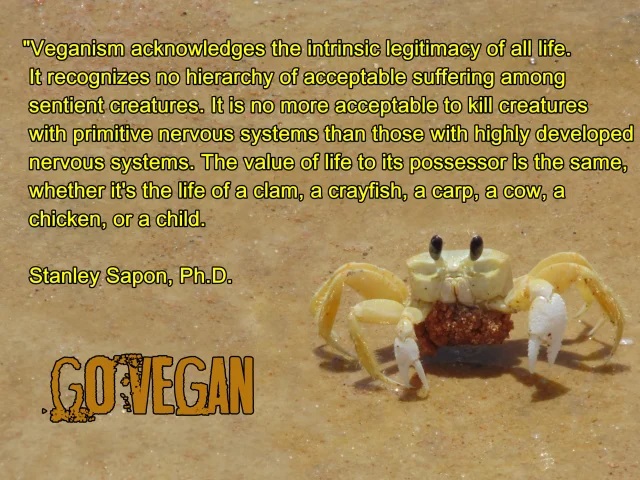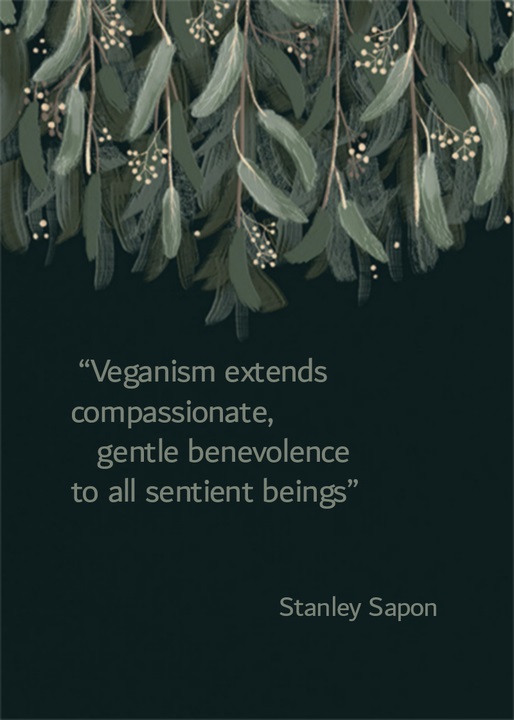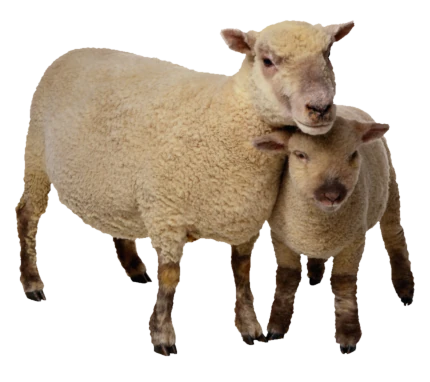by Stanley Sapon, PhD

The term philosophy is often used to mean a set of basic values and attitudes toward life, nature and society. In this sense, Veganism is a “Philosophy of Life,” guided by what I envision as an essential core of values and principles:
Vegans see life as a phenomenon to be treasured, revered and respected. We do not see animals as either “The Enemy” to be subdued, or the Materials for Food, Fabric or Fun that were put on Earth for human use.
Vegans see themselves as a part of the natural world, rather than its owners or its masters.
Veganism recognizes no expendable or superfluous species that humans are free to hurt or destroy. Species of life-forms need not justify their existence, nor plead for protection from extinction on the grounds of their potential usefulness as food or medicine for humans. We continue to be burdened and misguided by adages such as “A weed is a plant we have not yet found a use for.”
Veganism acknowledges the intrinsic legitimacy of all life. It rejects any hierarchy of acceptable suffering among sentient creatures. It is no more acceptable to torment or kill creatures with “primitive nervous systems” than those with “highly developed nervous systems.” The value of life to its possessor is the same, whether it be the life of a clam, a crayfish, a carp, a cow, a chicken, or a child.
Veganism understands that gentleness cannot be a product of violence, harmony cannot be a product of strife, and peace cannot be a product of contention and conflict.
Vegan ideals encompass much more than advocacy of a diet free of animal products, or a fervent defense of animal rights. Veganism excludes no sentient being—animal or human—from its commitment to compassionate, gentle benevolence. To show tender regard for the suffering of animals, yet treat humans with callous contempt, is a disheartening contradiction of Vegan principles.
John Muir, talking about the natural environment, once observed “Every time I bend down to pick something up, I find it is connected to something else.” There is an equivalent “ecology” to our behavior. Everything we do connects to something else; every action touches on the world around us, either close at hand and noticeable, or far away and unperceived, immediate in its effect or distant in time.
If Veganism has a prime value, it is simply that life-respecting compassion overrides individual issues of custom, convenience, comfort or cuisine.
If there is a single article of faith, it is that commitment to Vegan values will bring us closer to a world in which the fate and fortune of a planet and all its life forms do not hang on the judgment or the generosity of one species.
If there is one single concept that both generates and sustains the meaning and the power of the Vegan worldview, it is found in the word mindfulness. As Vegans, we strive to be thoughtful, aware and concerned about the impact of our choices, our actions and our decisions. The fruit of this awareness is inner peace, the quiet strength of ethical confidence, and an uplifting sense of fulfillment.
Reprinted with permission of Dr. Stanley Sapon

Stanley M, Sapon, Ph.D. is Professor Emeritus of Psycholinguistics at the University of Rochester (N.Y.), where he was Director of the Verbal Behavior Laboratory and the Child Language Development Center. Since earning his Doctorate at Columbia University in 1949, he has taught at universities in this country and abroad, and carried out extensive research in learning at Harvard University and the University of California Los Angeles. He was Director of Research in Verbal Behavior at the Britannica Center for Studies in Learning in Palo Alto, California.

